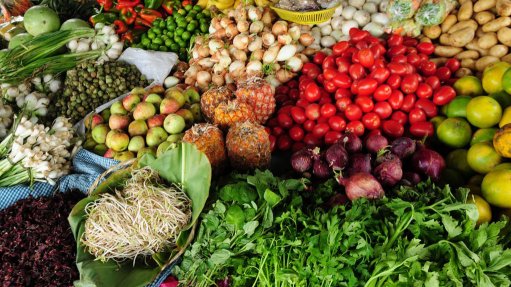Doctoral scientists being trained to adapt crops to improve food security
The African Plant Breeding Academy, which trains plant breeders in advanced crop breeding, is training 11 doctorate-level scientists from across the continent to use Clustered Regularly Interspaced Short Palindromic Repeats (CRISPR) tools to develop crop varieties adapted to the changing climate.
CRISPR allows scientists to make precise and specific changes to deoxyribonucleic acid (DNA) sequences in living organisms, including crops.
“This will help plant scientists to quickly develop crop varieties, such as those adapted to the changing climate, and to boost their nutritional content for important vitamins and minerals, including zinc, iron and vitamin A, which are critical for human health and development,” food crop nutrition and productivity initiative African Orphan Crops Consortium (AOCC) said.
“Gene editing makes specific, targeted changes to the DNA of an organism and can be programmed to produce products equivalent to those developed through conventional breeding. Gene-edited crops and their products that are equivalent to conventionally bred crops should be regulated under the conventional seed laws,” said African Union Development Agency - New Partnership for African Development (AUDA-Nepad) principal programme officer Dr Silas Obukosia.
“In contrast, techniques used to develop genetically modified organisms often involve introducing genetic material from distantly related organisms to develop traits of economic importance,” he noted, adding that AUDA-Nepad supports gene editing as one of the key innovations that will transform the continent.
Climate change is making it more difficult to grow enough nutritious food, and the programme will help scientists to harness the cutting-edge breeding tool to adapt agriculture to new threats.
“The initiative will enable Africans to drive innovation critical to improving African crops and help eliminate stunting owing to malnutrition,” said University of California Davis Seed Biotechnology Centre director and AOCC scientific director Dr Allen van Deynze.
“This training imparts knowledge, skills and tools to accomplish gene-editing in crop plants to national programme scientists in Africa,” added AOCC capacity building and mobilisation supervisor and African Plant Breeding Academy director Dr Rita Mumm.
Eleven doctorate scientists from seven countries are participating in this first cohort, from 57 applicants. The scientists work at institutions that are already undertaking research in gene editing in crop plants or have committed to doing so upon their employee’s graduation from the course.
“The gene-editing toolkit training is a momentous occasion that should be celebrated, given the scale of the problem that CRISPR is expected to address,” said AOCC founder Dr Howard-Yana Shapiro.
“CRISPR is a key strategy towards improving food nutrition in Africa, and the trainees from this programme will be the change agents that will make the impossible happen, especially with the kind of pan-African collaboration we have witnessed [in the programme],” he said.
Meanwhile, the programme supports the United Nations Sustainable Development Goal 2, which aims to end hunger, achieve food security and improve nutrition, as well as promote sustainable agriculture by 2030, the AOCC said.
“It is a step in the right direction. Addressing nutrition by improving local skillsets through such a programme is key to improving food security on the continent and an important contribution to a productive and sustainable transformation of African agriculture,” said agroforestry science and knowledge practices organisation World Agroforestry interim director-general Dr Ravi Prabhu.
The initiative is driven by the AOCC, and the University of California Davis organised the six-week training programme in partnership with the University of California Berkeley’s Innovative Genome Institute and the International Institute for Tropical Agriculture (IITA) and the World Agroforestry and the International Livestock Research Institute.
The IITA is hosted in Nairobi, Kenya, by the Centre for International Forestry Research. Additional partners of the initiative include companies Morrison and Foerster, Bayer, Syngenta and UM6P Ventures, as well as food funders, researchers and farmers network organisation the Foundation for Food and Agricultural Research.
Comments
Press Office
Announcements
What's On
Subscribe to improve your user experience...
Option 1 (equivalent of R125 a month):
Receive a weekly copy of Creamer Media's Engineering News & Mining Weekly magazine
(print copy for those in South Africa and e-magazine for those outside of South Africa)
Receive daily email newsletters
Access to full search results
Access archive of magazine back copies
Access to Projects in Progress
Access to ONE Research Report of your choice in PDF format
Option 2 (equivalent of R375 a month):
All benefits from Option 1
PLUS
Access to Creamer Media's Research Channel Africa for ALL Research Reports, in PDF format, on various industrial and mining sectors
including Electricity; Water; Energy Transition; Hydrogen; Roads, Rail and Ports; Coal; Gold; Platinum; Battery Metals; etc.
Already a subscriber?
Forgotten your password?
Receive weekly copy of Creamer Media's Engineering News & Mining Weekly magazine (print copy for those in South Africa and e-magazine for those outside of South Africa)
➕
Recieve daily email newsletters
➕
Access to full search results
➕
Access archive of magazine back copies
➕
Access to Projects in Progress
➕
Access to ONE Research Report of your choice in PDF format
RESEARCH CHANNEL AFRICA
R4500 (equivalent of R375 a month)
SUBSCRIBEAll benefits from Option 1
➕
Access to Creamer Media's Research Channel Africa for ALL Research Reports on various industrial and mining sectors, in PDF format, including on:
Electricity
➕
Water
➕
Energy Transition
➕
Hydrogen
➕
Roads, Rail and Ports
➕
Coal
➕
Gold
➕
Platinum
➕
Battery Metals
➕
etc.
Receive all benefits from Option 1 or Option 2 delivered to numerous people at your company
➕
Multiple User names and Passwords for simultaneous log-ins
➕
Intranet integration access to all in your organisation


















